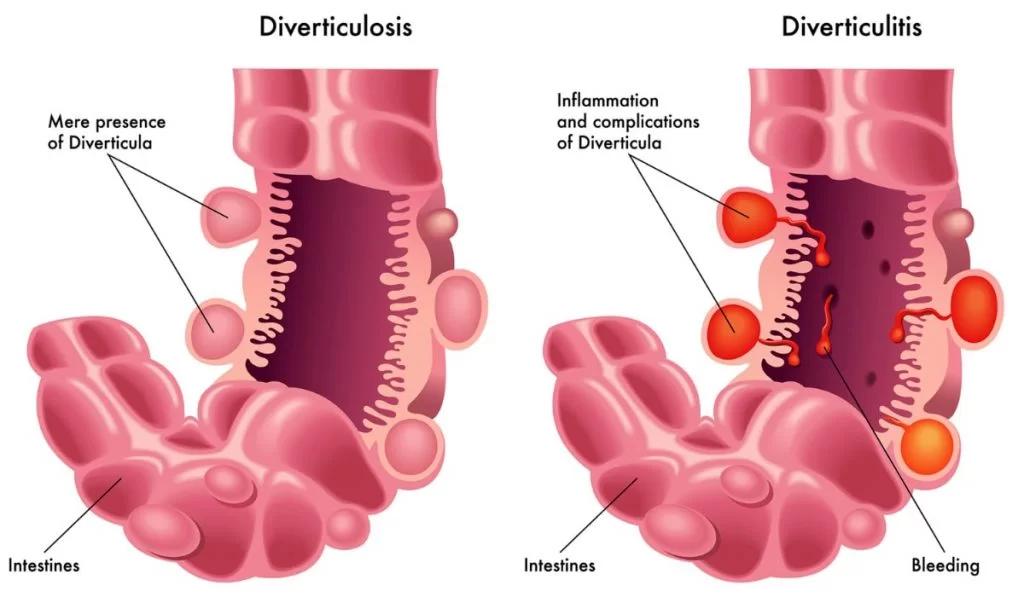Latest post
Post Categories
- No categories
Diverticular disease of the colon Treatment in Hyderabad
Understanding Diverticulitis: Causes, Symptoms, and Management
Discover why diverticulitis is a common problem in the United States, its clinical presentation, and the latest guidelines for management. Learn how to identify
symptoms and explore effective treatment options for this prevalent condition.
Introduction
Diverticulitis is a prevalent issue, leading to a significant number of hospital admissions in the United States each year. Understanding its causes, clinical presentation, and management guidelines is crucial for effective treatment and prevention. In this comprehensive guide, we delve into the intricacies of diverticulitis, exploring its various aspects and offering insights into its management.
Etiologies of Diverticulitis
Understanding the underlying causes of diverticulitis is essential for effective management. Let’s explore some key etiologies associated with this condition:
- Diverticulosis
- Dietary Factors
- Genetic Predisposition
- Age-related Changes
Each of these factors contributes to the development of diverticulitis, highlighting the importance of a comprehensive approach to its management.

Clinical Presentation of Diverticulitis
The clinical presentation of diverticulitis can vary widely, ranging from mild abdominal pain to severe complications such as generalized peritonitis. Recognizing the symptoms is crucial for early detection and intervention.
- Abdominal Pain
- Fever
- Nausea and Vomiting
- Changes in Bowel Habits
By understanding these symptoms, healthcare providers can promptly diagnose diverticulitis and initiate appropriate treatment.
Diagnosis and Management Guidelines
Accurate diagnosis and timely intervention are essential for effective management of diverticulitis. Various diagnostic modalities and treatment options are available to address this condition. Let’s explore some key aspects of diagnosis and management:
1. Diagnostic Imaging
- CT Scan: The primary imaging modality for diagnosing diverticulitis.
- Ultrasound: Useful for assessing complications such as abscess formation.
2. Antibiotic Therapy
3. Surgical Intervention
- Indications: Recurrent episodes, complications such as abscess or perforation.
- Surgical Options: Partial colectomy or sigmoid colectomy may be necessary in refractory cases.
By adhering to current guidelines and recommendations, healthcare providers can optimize outcomes for patients with diverticulitis.
Frequently Asked Questions (FAQs)
While the exact cause of diverticulitis is unknown, adopting a high-fiber diet and maintaining a healthy lifestyle may reduce the risk.
Risk factors include age, dietary habits, obesity, and a sedentary lifestyle.
While diverticulosis is a chronic condition, not all patients with diverticulosis develop diverticulitis. Acute episodes of diverticulitis can be managed effectively with appropriate treatment.
Complications may include abscess formation, perforation, and fistula formation.
Yes, diverticulitis can recur, especially in patients with a history of multiple episodes or severe complications.
Treatment typically involves intravenous antibiotics, bowel rest, and supportive care. In severe cases, surgical intervention may be necessary.
Conclusion
Diverticulitis is a common problem with significant implications for patient health and well-being. By understanding its causes, clinical presentation, and management guidelines, healthcare providers can offer effective treatment and improve outcomes for patients with this condition.
